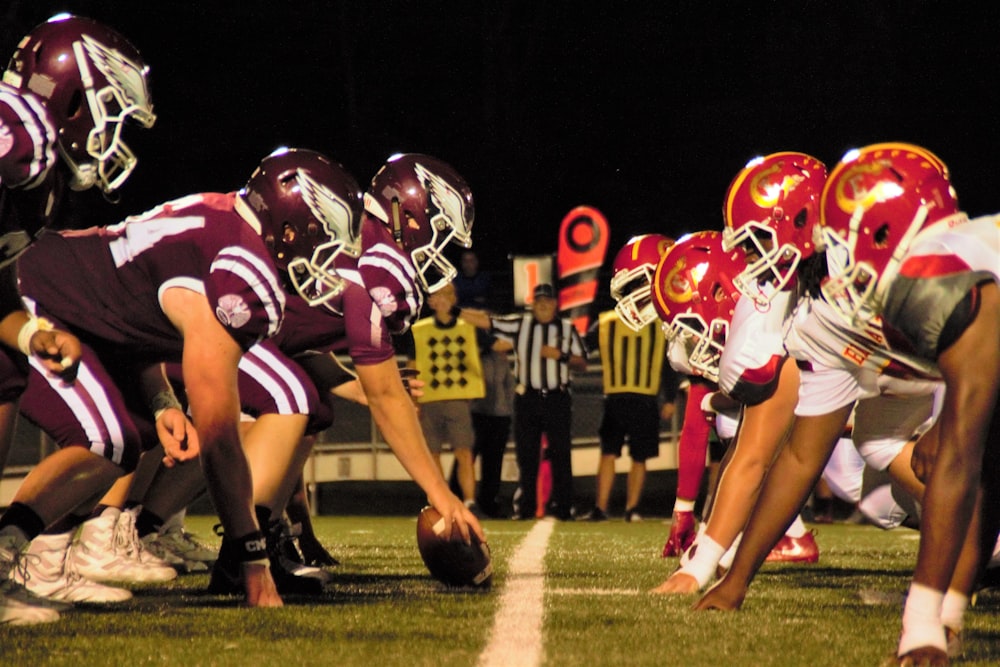American Football

Introduction
American football, a sport watched and loved by millions across the United States and around the world, has a rich history that dates back over a century. Its origins, evolution, and the reasons behind its immense popularity in the U.S. are as complex as the game itself. This blog post aims to delve into the roots of American football, track its development over the years, and explore why it has become a staple of American culture.
The Origins of American Football
The game of American football has its roots in the early versions of rugby and soccer, both of which originated from England. In the late 19th century, these sports made their way across the Atlantic, finding a new home in the prestigious colleges of the United States. The first intercollegiate football game was played on November 6, 1869, between Princeton and Rutgers University. This game, which resembled more of soccer than modern-day American football, marked the beginning of collegiate football in the U.S.
The transformation from a soccer-like game to the current form of American football didn't happen overnight. Walter Camp, known as the "Father of American Football," was instrumental in shaping the game. He introduced several key changes in the late 19th and early 20th centuries, such as the line of scrimmage, the concept of downs, and the forward pass. These innovations helped to distinguish American football from rugby and soccer, laying the foundation for the sport as we know it today.
Evolution and Professionalization
As the game evolved, so did its popularity. The formation of professional leagues was a significant milestone in the history of American football. The National Football League (NFL), established in 1920 as the American Professional Football Association before renaming itself in 1922, played a pivotal role in the professionalization and commercialization of the sport. The NFL introduced a standardized set of rules, regular season schedules, and the concept of a championship game, which eventually evolved into the Super Bowl, one of the most watched sporting events in the world.
Collegiate football also continued to grow in popularity, with the NCAA (National Collegiate Athletic Association) playing a crucial role in governing the sport and organizing national championships. The intense rivalries between colleges, the pageantry of game days, and the development of bowl games added to the sport's appeal.
Popularity in the United States
Several factors contribute to the immense popularity of American football in the U.S.:
- Cultural Significance: Football has ingrained itself into American culture. High school football games on Friday nights, college games on Saturdays, and NFL games on Sundays and Mondays have become a significant part of American life, marking the fall season each year.
- Community and Identity: Football fosters a sense of community and identity among fans. Whether it's supporting a local high school team, alma mater, or an NFL team, the sport brings people together, creating lifelong bonds and rivalries.
- Entertainment Value: The strategic complexity of the game, combined with its physical intensity, provides high entertainment value. Each game tells a story of strategy, teamwork, and individual prowess, captivating audiences.
- Media and Commercialization: The NFL and college football have mastered the art of media coverage and commercialization. Through lucrative TV contracts, merchandise sales, and advertising, football has become a billion-dollar industry, further cementing its place in American society.
- Traditions and Innovations: The sport's ability to balance tradition with innovation keeps it relevant and exciting. From technological advancements in how the game is played and viewed to the halftime shows of the Super Bowl, football continues to evolve while honoring its roots.
Conclusion
The origins of American football, from its humble beginnings to its current status as a cultural phenomenon, highlight the sport's remarkable journey. Its deep roots in American history, combined with the excitement it brings to millions of fans, ensure that football remains more than just a game in the United States. It's a part of the country's identity, a celebration of community, competition, and athleticism that continues to captivate and unite people across the nation.



























































